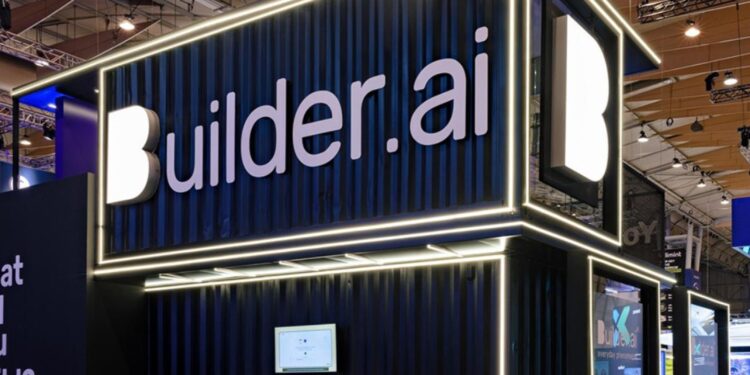A startup that promised to build apps using artificial intelligence was exposed for using human workers instead. Builder.ai, backed by Microsoft, has now filed for bankruptcy after years of misleading customers and investors.
The Fake AI Scandal
Builder.ai claimed its AI assistant named Natasha could build mobile apps for customers. People would chat with what they thought was an AI chatbot and get a working app based on their needs. But the company was lying about using AI technology.
Instead of AI, Builder.ai hired 700 human engineers in India to pretend to be the chatbot. These real people would respond to customers and then manually code the apps. The whole operation was fake from start to finish.
The London-based company fooled investors and customers for years. It raised money by claiming to use advanced AI when it was really just a regular software development company with workers pretending to be robots.
Financial Collapse
Builder.ai’s lies caught up with it in 2024. The company had told investors it would make $220 million in revenue. But when auditors looked at the books, they found the company only made $50 million which is less than a quarter of what was promised.
The financial problems got worse when lenders discovered the fake numbers. Viola Credit, which had loaned the company $50 million, seized $37 million from Builder.ai’s bank accounts. This left the company with only $5 million to operate.
Builder.ai also owes huge amounts to major tech companies:
- $85 million to Amazon for cloud services
- $30 million to Microsoft for cloud services
The company could not pay these bills and ran out of money to keep operating.
Fraud Allegations
Multiple people have accused Builder.ai of fraud. A former employee sued the company. Linas Beliūnas from Zero Hash wrote on LinkedIn that the company “had no AI and instead was just a group of Indian developers pretending to write code as AI.”
The U.S. Securities and Exchange Commission is now investigating whether Builder.ai lied to investors about its technology and financial performance. Federal prosecutors are also looking into potential investor fraud charges.
AI Washing Problem
Builder.ai’s fake AI is part of a bigger problem in tech called “AI washing.” This happens when companies claim to use artificial intelligence when they don’t really use it or use much less than they claim.
Many companies are adding “AI” to their marketing to attract customers and investors, even when the technology is not truly artificial intelligence. This misleads people who think they are getting advanced AI services.
Research shows most people are already skeptical about AI. A Pew Research Center study found that 43% of people think AI will harm them, while only 24% think it will help them. Cases like Builder.ai make people trust AI companies even less.
The Bankruptcy
Builder.ai filed for bankruptcy in three countries: the United Kingdom, India, and the United States. The company posted on LinkedIn that despite trying to fix its problems, it could not recover from “historic challenges and past decisions.”
The company said it would appoint an administrator to manage its affairs and try to pay back some of what it owes to creditors and suppliers.
Impact on Investors
Builder.ai had raised hundreds of millions of dollars from major investors including Microsoft, SoftBank, and Qatar Investment Authority. The company was once valued at $1.5 billion, making it a “unicorn” startup.
All of this investor money is now likely lost. Microsoft alone is owed $30 million for cloud services that Builder.ai never paid for.
Lessons Learned
The Builder.ai collapse shows how important it is to verify company claims about AI technology. Investors and customers should ask detailed questions about how AI systems actually work.
The case also highlights the need for better oversight of AI claims in marketing and investor materials. Regulators are starting to crack down on companies that make false claims about using artificial intelligence.
For consumers, the Builder.ai story is a reminder to be careful about companies promising magical AI solutions. Real AI technology exists, but many companies exaggerate what their systems can do.
The collapse of Builder.ai may help clean up the AI industry by showing there are serious consequences for faking artificial intelligence capabilities.














